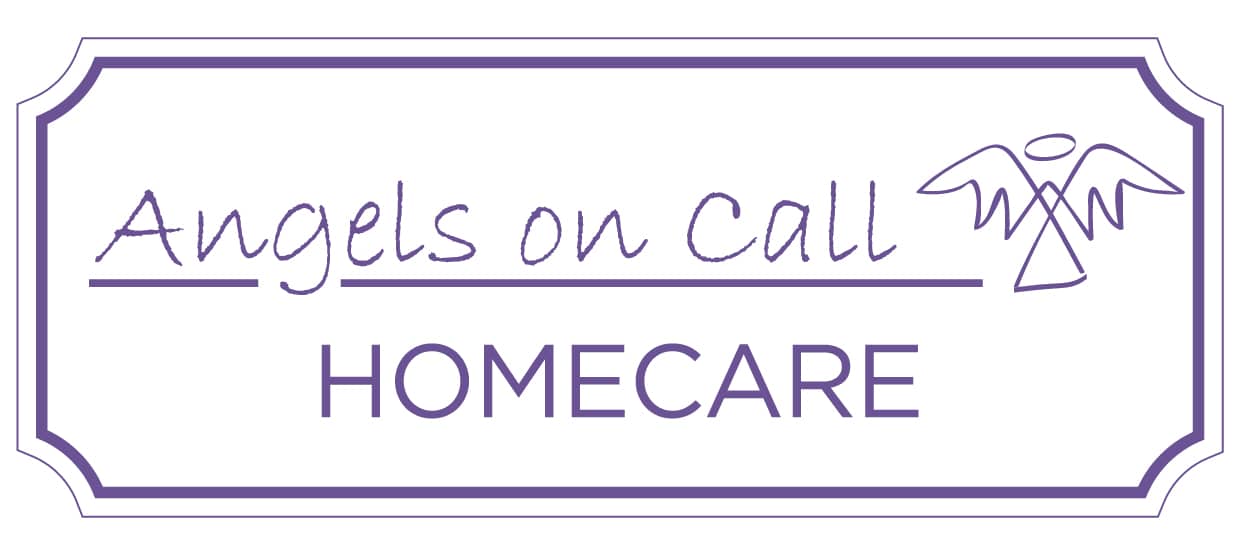Alzheimer’s disease is a degenerative disorder that can take on many forms and cause a variety of cognitive changes. For friends, families, and caregivers, Alzheimer’s disease can be incredibly frustrating to manage at home. This is due mostly to the cognitive decline in once capable loved ones that don’t seem to be consistent. One day mom can be laughing and joking, carrying on as her normal self and the next, she may be lost, confused, and struggling to do simple things for herself and may not even recognize you. For the most part, those who suffer from Alzheimer’s disease are blissfully unaware of their dementia, which is the one saving grace of the disease. However, those coherent moments can become overwhelming and frightening when they are intermittent and they become aware of a situation that is unfamiliar.
At Angels on Call Homecare, we have the skills, training, and experience working with patients and families with Alzheimer’s disease and other cognitive disorders. Join us in today’s post as we discuss some ways to safely manage Alzheimer’s disease at home.
1. Learn about the disease.
In 2019, there is a lot more awareness about Alzheimer’s disease, which is great. However, there are also a lot of misconceptions and information gaps in the general public. Even if you have heard of Alzheimer’s disease before and may be vaguely familiar with it, it is completely different when a loved one has been diagnosed. If you have a friend or family member diagnosed, take the time to learn more about the disease. This can help give you more insight as to why your loved one us behaving the way they are, what to expect, and how others manage the disease.
2. Take every day as a new day.
One of the best ways to manage any cognitive disorder is to take each day as its own. Although we know a lot about the brain and its functioning, it is still incredibly difficult to predict how it will work from one day to the next. Nutrition, hydration, oxygenation, and sleep all play a part in how the disease manifests. One day your loved one can wake up with a fresh mind and seem to be recovering. As you will understand if you heed our advice in tip number 1, Alzheimer’s disease does not improve and there currently is no known cure. There are treatments that can improve symptoms, but it is not a guarantee and each day the brain and body may respond differently. Be patient and address each day as its own.
3. Accept help and ask for it.
As the primary caregiver to someone with dementia or any cognitive disorder, caring for your loved one is much more demanding than caring for a child or a loved one with a physical limitation. There is no shame in accepting help and asking for it. While you may feel obligated to take on the brunt of the work, and you may feel guilty asking for help, these feelings are normal, but are ones that shouldn’t weigh too heavily. If allowing someone else to pick up your groceries or to bring you dinner would help relieve some stress, take it. Allow people to help you, if only in small ways. If you have siblings or other family members, don’t be afraid to share the responsibilities with them.
4. Activate respite services.
Respite services are of great help for caretakers of those with Alzheimer’s disease! Respite services are temporary caregiving services for the purpose of relieving the primary caregiver. You can take advantage of respite services for a few hours to grab lunch with friends and complete the grocery shopping or for a few weeks to go on your family vacation. Respite services offer all the things you do — assistance with activities of daily living, personal care, mobility assistance, and memory care, along with meal preparation, medication administration, and housekeeping — for a short while so you can do the other things your life demands of you, or to simply rest. Respite care helps prevent caregiver fatigue and can strengthen the bond between you and your loved one. After all, self care is health care.
Read more about respite care in our previous blog.
5. Enlist the help of home health professionals.
Home health professionals, especially those who are trained in memory care, are an excellent resource for you and your loved one. In-home care services can range from part-time companion care to full-time medical care and everything in between. Home care services allow you to continue your career or raising your children while also managing your loved one’s Alzheimer’s disease at home.
At Angels on Call Homecare, we provide in-home care services to patients with Alzheimer’s disease and other cognitive impairments in Putnam County and the surrounding New York area. We have in-home companions, housekeepers, certified nursing assistants, home health nurses, and a variety of other professionals that can help manage your loved one’s needs from the comfort of their home. For an angel to watch over your loved one when they need it most, contact us for an in-home evaluation today!




